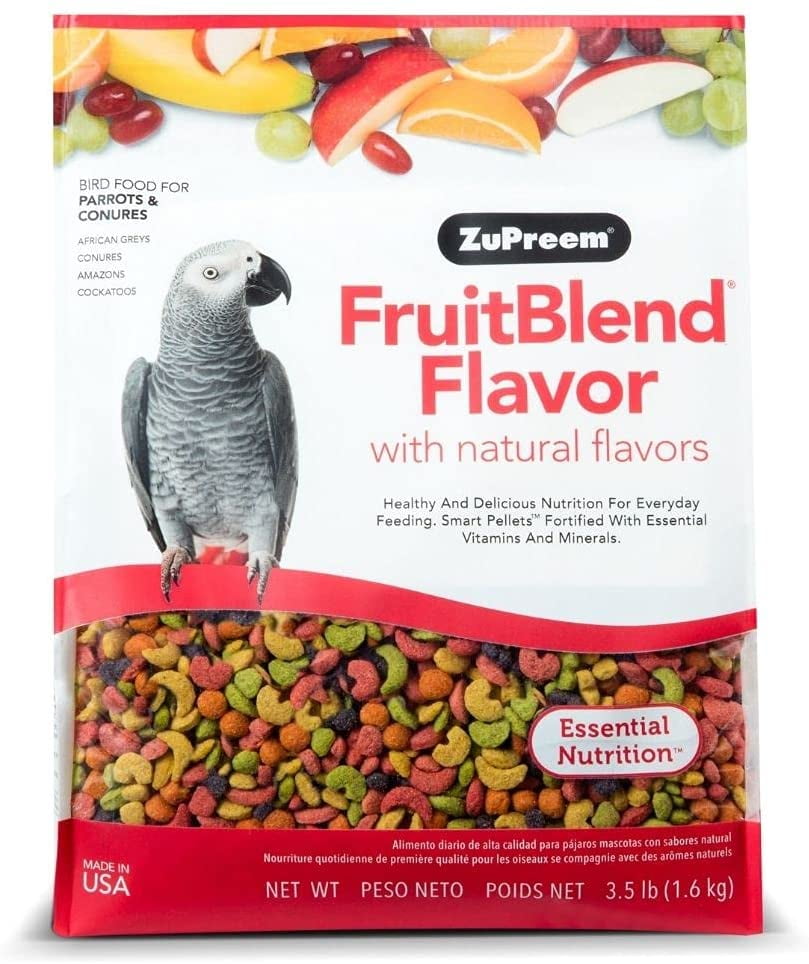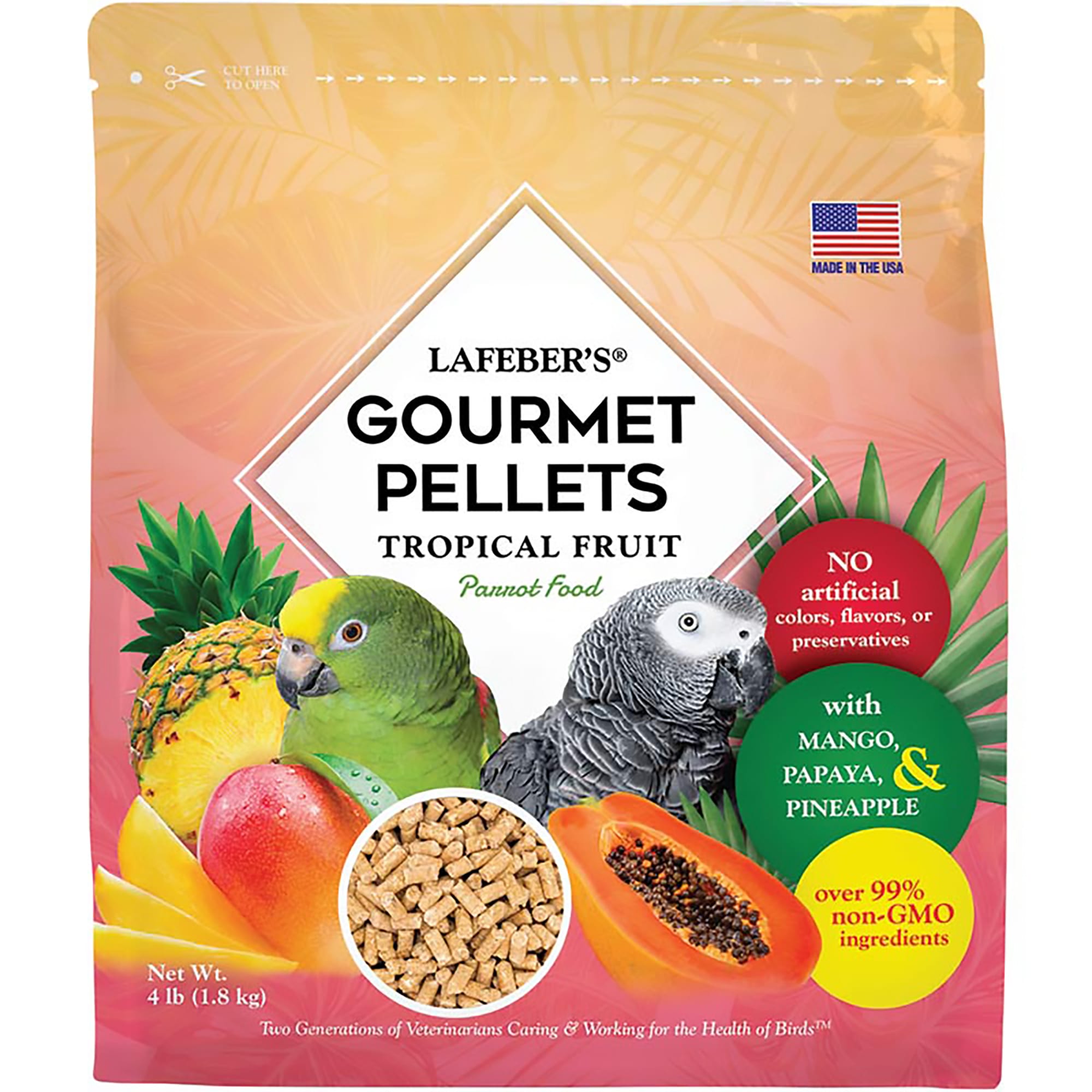
The Sweet Talk: Exploring the World of Fruit-Flavored Parrot Pellets
Parrots, with their vibrant plumage and captivating personalities, are beloved companions. As responsible parrot owners, we’re constantly striving to provide them with the best possible care, and nutrition plays a pivotal role. While a seed-based diet was once the norm, the understanding of avian nutrition has evolved, leading to the rise of parrot pellets as a foundation for a healthy diet. But what about those parrots with a sweet tooth? Enter fruit-flavored parrot pellets – a blend of balanced nutrition and enticing flavors.
The Rise of Pelleted Diets
Before delving into the world of fruit-flavored pellets, it’s crucial to understand why pelleted diets have become so popular among avian veterinarians and parrot enthusiasts.
- Nutritional Completeness: Unlike seed mixes, which can be high in fat and deficient in essential vitamins and minerals, pellets are formulated to provide a complete and balanced diet. Each pellet contains a precise ratio of proteins, carbohydrates, fats, vitamins, and minerals, ensuring that your parrot receives all the necessary nutrients for optimal health.
- Reduced Selective Feeding: Parrots are notorious for picking out their favorite seeds from a mix, often leaving behind the healthier components. Pellets eliminate this selective feeding behavior, ensuring that your parrot consumes a consistent and nutritionally complete meal every time.
- Improved Health Outcomes: Studies have shown that parrots fed a predominantly pelleted diet tend to have better overall health, including improved feather quality, stronger immune systems, and a reduced risk of obesity and related health problems.
The Allure of Fruit Flavors
While the benefits of pellets are undeniable, transitioning a parrot from a seed-based diet to pellets can be challenging. Parrots are creatures of habit, and many are resistant to trying new foods, especially those that don’t appeal to their taste buds. This is where fruit-flavored pellets come into play.
- Increased Palatability: The addition of fruit flavors, such as apple, banana, berry, or citrus, makes pellets more appealing to parrots, especially those who are accustomed to the sweet taste of fruits and seeds.
- Easier Transition: Fruit flavors can help bridge the gap between a seed-based diet and a pelleted diet. By introducing fruit-flavored pellets gradually, you can entice your parrot to try them and eventually accept them as a regular part of their diet.
- Variety and Enrichment: Even for parrots who readily accept plain pellets, fruit-flavored varieties can add variety and enrichment to their diet. Offering different flavors can help keep mealtime exciting and prevent boredom.
Choosing the Right Fruit-Flavored Pellets
With a wide range of fruit-flavored parrot pellets available on the market, it’s essential to choose a high-quality product that meets your parrot’s specific needs. Here are some factors to consider:
- Ingredients: Carefully examine the ingredient list. The primary ingredients should be whole grains, fruits, and vegetables, followed by a balanced blend of vitamins and minerals. Avoid pellets that contain artificial colors, flavors, or preservatives, as these can be harmful to your parrot’s health.
- Nutritional Analysis: Look for a guaranteed analysis that provides information on the protein, fat, fiber, and moisture content of the pellets. Consult with your avian veterinarian to determine the ideal nutritional profile for your parrot’s species, age, and activity level.
- Pellet Size and Shape: Choose pellets that are appropriately sized for your parrot’s beak. Small pellets are suitable for smaller parrot species like budgies and cockatiels, while larger pellets are better for larger parrots like macaws and cockatoos. The shape of the pellets can also influence your parrot’s acceptance. Some parrots prefer round pellets, while others prefer cylindrical or star-shaped pellets.
- Brand Reputation: Opt for reputable brands that have a proven track record of producing high-quality parrot pellets. Look for brands that conduct thorough research and testing to ensure the safety and effectiveness of their products.
- Organic Options: Consider organic fruit-flavored pellets if you prefer to feed your parrot a diet that is free from pesticides and other harmful chemicals.
Transitioning Your Parrot to Fruit-Flavored Pellets
Transitioning a parrot from a seed-based diet to fruit-flavored pellets requires patience and persistence. Here are some tips to make the process smoother:
- Gradual Introduction: Start by mixing a small amount of fruit-flavored pellets with your parrot’s regular seed mix. Gradually increase the proportion of pellets over time, while decreasing the amount of seeds.
- Offer Pellets First: Offer the pellets in the morning when your parrot is most hungry. This will increase the likelihood that they will try them.
- Make it Fun: Turn mealtime into a game. Offer the pellets in foraging toys or puzzle feeders to make them more engaging and stimulating.
- Hand-Feeding: If your parrot is hand-tame, try hand-feeding them the pellets. This can help them associate the pellets with positive reinforcement.
- Persistence is Key: Don’t give up if your parrot initially rejects the pellets. It may take several weeks or even months for them to fully accept them.
Supplementing with Fresh Fruits and Vegetables
While fruit-flavored pellets can provide a balanced foundation for your parrot’s diet, it’s still essential to supplement them with fresh fruits and vegetables. Fresh produce provides essential vitamins, minerals, and antioxidants that are not always present in pellets. Offer a variety of colorful fruits and vegetables, such as apples, bananas, berries, carrots, broccoli, and spinach.
Potential Drawbacks and Considerations
While fruit-flavored pellets offer many benefits, there are also some potential drawbacks to consider:
- Sugar Content: Some fruit-flavored pellets may contain higher levels of sugar than plain pellets. Excessive sugar intake can lead to health problems like obesity, diabetes, and yeast infections. Choose pellets with natural fruit sources and avoid those with added sugars.
- Artificial Additives: Some brands may use artificial colors, flavors, or preservatives to enhance the taste and appearance of their fruit-flavored pellets. These additives can be harmful to your parrot’s health and should be avoided.
- Dependence on Flavors: Some parrots may become overly reliant on the fruit flavors and refuse to eat plain pellets or other healthy foods. It’s essential to offer a variety of foods and not solely rely on fruit-flavored pellets.
Conclusion
Fruit-flavored parrot pellets can be a valuable tool for improving your parrot’s diet and overall health. By providing a balanced blend of nutrition and enticing flavors, they can help ease the transition to a pelleted diet and add variety and enrichment to mealtime. However, it’s crucial to choose high-quality pellets with natural ingredients and avoid those with excessive sugar or artificial additives. By supplementing fruit-flavored pellets with fresh fruits and vegetables and consulting with your avian veterinarian, you can ensure that your parrot receives the best possible nutrition for a long and healthy life.

